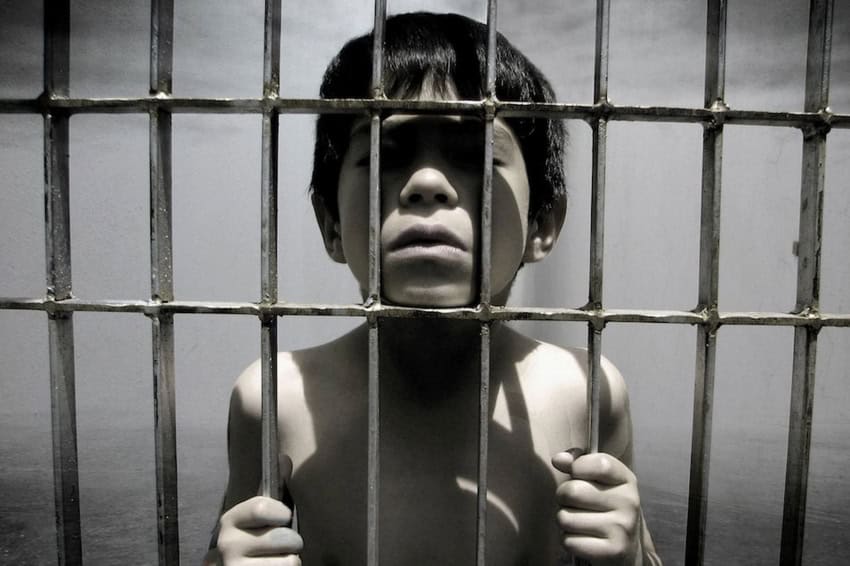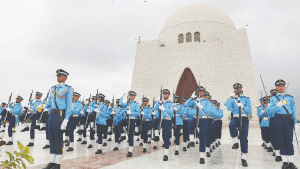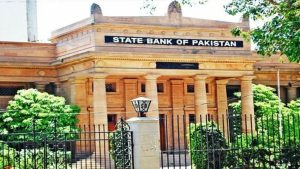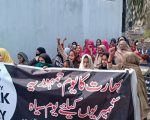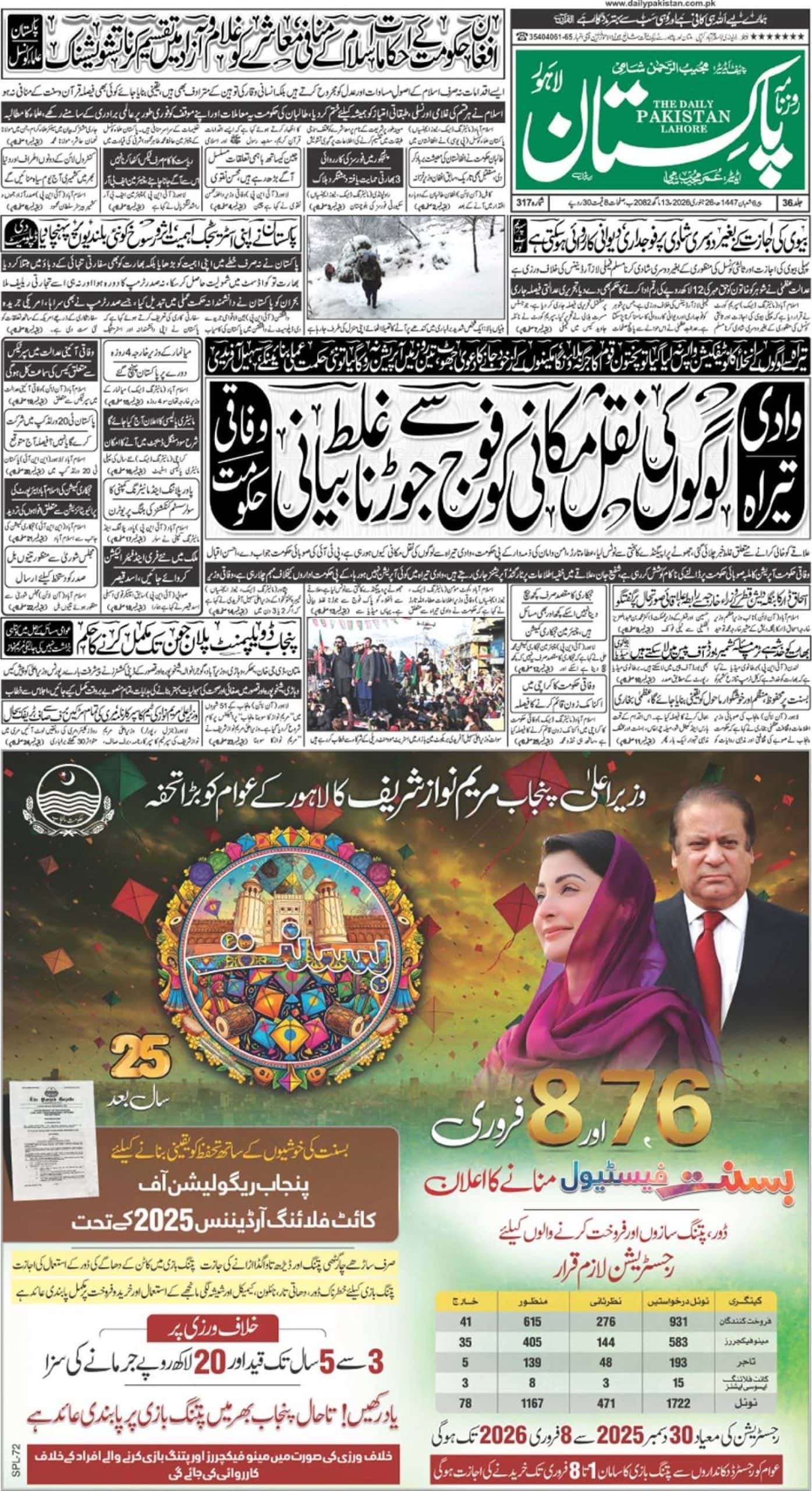The Juvenile Prisoners in Pakistan should be dealt as adults because “[g]rowing up in close proximity and interaction with adults due to social and economic conditions, doing odd jobs and getting employed at a relatively young age due to general poverty, hot climate and exotic and spicy food all contribute towards a speedy physical growth and an accelerated maturity of understanding of a child in our society.
– Lahore High Court, December 2004
For an honorable judge to pass these remarks and claim that Pakistani children under 18 should be tried as adults because “they eat spicy food” speaks volumes about awareness of human rights and rights of children in Pakistani criminal justice system. Last year a report on juvenile prisoners of Pakistan raised alarm among human rights activists and civil society alike, the report, based on research, stated that as many as 10% of prisoners on death row languishing in Pakistani prisons are children under the age of 18. Many of these children were arrested at the young ages of 14, 15, 16 and sentenced to death by our criminal justice system. After their sentencing, they waste the rest of their lives waiting for their gloomy end.
Availability of statistics on Juveniles prisoners of Pakistan:
The availability of stats on juveniles is synonymous with ‘un-availability’. The fact as to how many young alleged or convicted delinquents there are in Pakistani prisons remains ambiguous due to multiple factors – lack of proper maintenance of records, incidents of young offenders being registered as adults and the social stigma attached to the topic. This lack of proper maintenance of record makes it difficult to access the accurate stats even using the Right to Information Act (RTI).
According to the official statistics shared by the Punjab Government, there are total 599 juvenile inmates – of which 529 are under trial and 70 are convicted. Grippingly, all these 599 detainees are male and no data on female juvenile offenders or children living in jails with their parents is being shared by the government.

In Sindh, there are currently 181 juvenile prisoners in four jails of the province. 168 of these children are under trial and 13 are convicted. Just like in Punjab, there is no data available on female juveniles imprisoned in the jails of Sindh.

In Khyber Pakhtunkhwa, there are 338 youth alleged offender. Of these 338, 311 are under trial while 27 are convicted. There is no data available on the female juvenile prisoners in KP.

Talking about Baluchistan, there are 70 juvenile prisoners according to the official data. However, no statistics are available on how many are under trial and how many are convicted.
However, in October 2017 a provincial lawmaker of JUI-F Sardar Abdul Khetiran from Baluchistan claimed that there were 4000 juvenile prisoners locked up in different jails of the province and “99%” of them are subjected to sexual abuse.
When asked to authorities about this huge difference in the numbers – mentioned officially and quoted by Khetiran – they had no comment to offer.
In 2013, the then Chief Justice of Pakistan took Suo Moto notice of a report on juvenile prisoners, according to which in 2013, 1500 juveniles were imprisoned in Pakistan including 673 in Punjab; 262 in Sindh; 510 in KPK and 55 in Baluchistan.

The graph shows a comparison of the data mentioned in a report published in 2013 and the latest stats available. According to the graph, the number of juvenile prisoners in Punjab, Sindh, and KPK has been decreased by 74, 81, and 172 respectively while in Baluchistan the number has gone up by 15.
However, officials from all the provinces didn’t share any information on the achieved difference. Thus, it remains unclear if these children were convicted, released or grew out of juvenile phase.
Condemned children of Pakistan
Even though Pakistan was one of the first countries to promulgate the Juvenile Justice Ordinance (JJSO, 2000) to conform to international obligations and bring the law up to date, Pakistan has consistently failed to implement any of the protections that constitute basic requirements of human rights and protecting the rights of children. As recently as 2017, Pakistan has continued to update and modernize the laws to fulfill its obligations towards human rights by introducing laws such as Child Protection bill 2017 and Juvenile Justice Act 2017. However, facts on the ground state that the rights afforded to children continue to remain absent and children continue to languish in prison and on death row for crimes they did not commit.
JJSO prescribed separate juvenile courts, outlined specialized procedures for arrest, bail, trial rehabilitation, introduced a probation system which empowered the courts to release a delinquent child under the care of a guardian, or send the child to a borstal institution instead of forcing them to live with hardened criminals. These reforms, while good on paper, have never been implemented since.
There are a total of seven juvenile detention facilities in Pakistan. Two are in Punjab, four are in Sindh, one is in Khyber Pakhtunkhwa but it is not functional. There is no such facility in Baluchistan. As a result, the condemned children are kept in the same jails with adult offenders, thus, exposing them to the dark world of crime, sexual abuse, and violence.

Sexual abuse is so prevalent in jails across Pakistan that according to one lawmaker 99% of children in jails are sexually abused. Recently a case emerged in Khyber Pakhtunkhwah whereby a juvenile prisoner claimed that he was being ‘supplied’ by jail authorities to various other prisoners and prison guards. He claimed that all other children in the jail were also being exposed to sexual abuse and jail guards ‘supply’ them to prisoners and use them as a sexual commodity.
Extra-judicial torture by the police is another common form of violence juvenile prisoners has to face. The statistics revealed by Human Rights Commission in Pakistan (RHCP) on the violence in prison shows that 2 juveniles has suffered death due to the prevalence of extra-judicial torture and violence in the prisons. One former juvenile prisoner described the horrors he had faced during his time in jails.
According to the human rights activists, the juvenile prisoners are still being brought to the court in handcuffs and the legal implication to produce them in front of a judge within 24 hours of the arrest is never followed. Thus, this non-implementation of the JJSO is condemning these fragile molding children of Pakistan into complete darkness.
Children on Death Row
According to international law, death sentences for juveniles is unequivocally prohibited, however, it is astounding that approximately 10% of prisoners on death row continue to be children who allegedly committed their crimes when they were under the age of 18. When Pakistan lifted the moratorium on death sentences in 2014, this issue became extremely urgent and important. Pakistani human rights organizations and international observers alike were outraged that Pakistan would most likely hanging prisoners who committed alleged crimes when they were children, and we did: 6 of the prisoners who were hanged subsequently were juveniles when they committed the crimes they were accused of.
This issue is exacerbated by the fact that birth registration and age assessment protocols remain non-existent in the country. In 2015, Ansar Iqbal, a man who claimed he was 15 at the time of his arrest, was executed by Pakistani authorities despite local and international outcry. Even though Pakistani laws forbid execution of juvenile offenders, Iqbal’s birth certificates and school records were refused examination by the court because they were “submitted too late”. Such is the state of human rights in Pakistan that a legal technicality took precedence over human life and a minor offender was cruelly sent to the gallows.
Similarly, in 2015 Aftab Bahadur was hanged till death at the age of 38 after rotting in prison for 24 years. He was 14 at the time of his alleged crime. The man on whose testimony he was hanged had pleaded in front of court that he had made his statement under coercion, despite all that, Aftab Bahadur was hanged. Another high-profile and somewhat controversial case was that of Shafqat Hussain who claimed he was 14 at the time of his alleged crime. Pakistani human rights lawyers diligently perused his case and highlighted that not only was he 14 at the time of crime, his confession obtained by the police was also under duress. Initially his execution was halted by the Pakistani government and the then Interior Minister Chaudhry Nisar promised to conduct an inquiry into the matter. However, Pakistani authorities backtracked on the promises and executed him in August 2015.
The Pakistani criminal justice system is rife with many such cases and these cases highlight the complete disregard our criminal justice system has for the rights of children and our international obligations to human rights.
Where were you born? – In a prison
According to a media report, there are currently more than 500 children living with their mothers in the jails across the country. However, no specific data is available on these children and the accessibility to these children is very limited.
Till a few years ago, the birth certificate of these children – who had committed no actual crime except being born to women, who are either under trial or convicted – had prison as their birth place. By this practice, our lawmakers were just making sure not to even give these poor kids a shot at a normal respectable life. Who would want to give job to someone whose birthplace was a prison?
It was only in the near past that this practice changed and they have started using the city name as birth of place. This initiative is admirable but there is so much that still needs to be done.
However, the situation of separate center for these children, the situation of provision of educational, mental and physical health facilities remains the same. These children – they grow up with under trial or convicted adult prisoners and without any social welfare. These children stand exposed to a wide range of harmful elements ranging from life threats, sexual abuse, violence, mental and physical health complication to the nastiest abuses.
Factors that make the situation worse:
Ideally, the main purpose of a prison, detention facility or a rehabilitation center is to put the young offenders through a process which makes them realize their mistake and equips them with education, positive energy, self- esteem, and awareness so that they can cope up with the challenges in the outside world, utilize they abilities to make a place for themselves and don’t indulge in criminal or other such activities
However, the situation in Pakistan is far from ideal. Talking – specifically about juvenile prisoners – the situation of prisons in the beloved country is terrifying and troublesome.
The ignorance or willful negligence of the law even from law enforcement authorities remains astounding. According to UNICEF reports, 80% of the children currently in prison were handcuffed on arrest and physically abused by the police. Police forcing children to confess under abuse and torture also remains common, with 68% stating that they confessed under torture by the police. In addition, police continues to use children to extort bribes from families and those who cannot pay bribes are sent to prison. This means that almost all the children who are sent to prison are from the most vulnerable strata of society – the poor street children. Inside prisons, many juvenile children are forced to live among hardened criminals who turn prisons into schools of crime for these children.
Laws and regulations sensitive to issues of children, while necessary, are barely enough to protect our children in the criminal justice system. When a sitting judge of a high court can claim that children achieve adulthood early due to spicy food and hot weather, you know that the issues are more deeper rooted than we appreciate. Awareness at all levels, from the children themselves to lawyers, police, judges, magistrates and lawmakers is extremely necessary to sensitize them about the issues that our children in jails face.
Children are considered the future of any country and how we treat our children shows how invested we are in our future. The state of this country’s future in the jails is a cry for help and we better answer today.
We are guilty of many errors and faults,
But our worst crime is abandoning the children,
Neglecting the foundation of life,
Many of the things we need can wait,
The child cannot, Right now is the time,
His bones are being formed,
His blood is being made,
And his senses are being developed,
To him we cannot answer,
Tomorrow, His name is Today,
Dare we answer Tomorrow?

